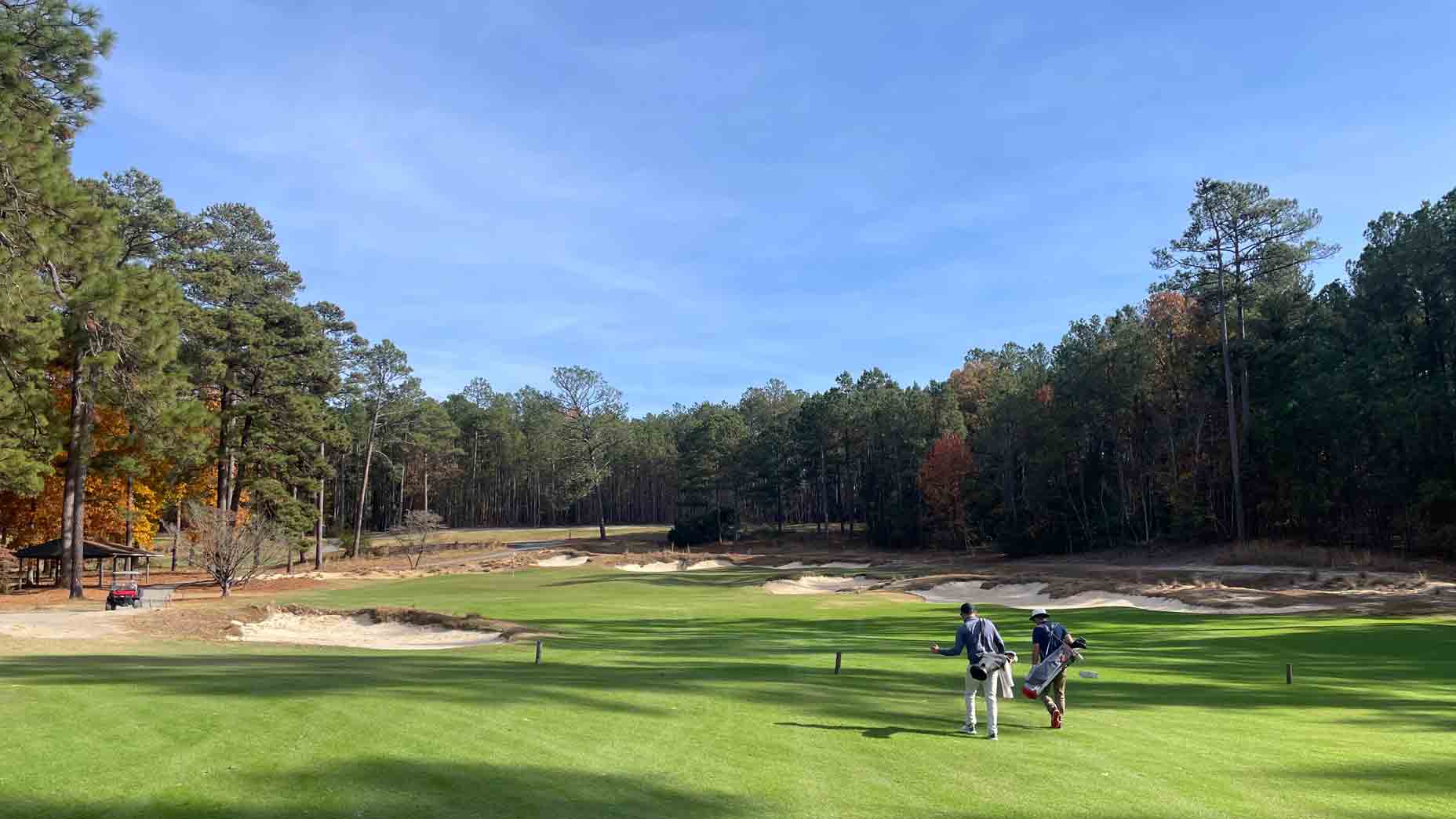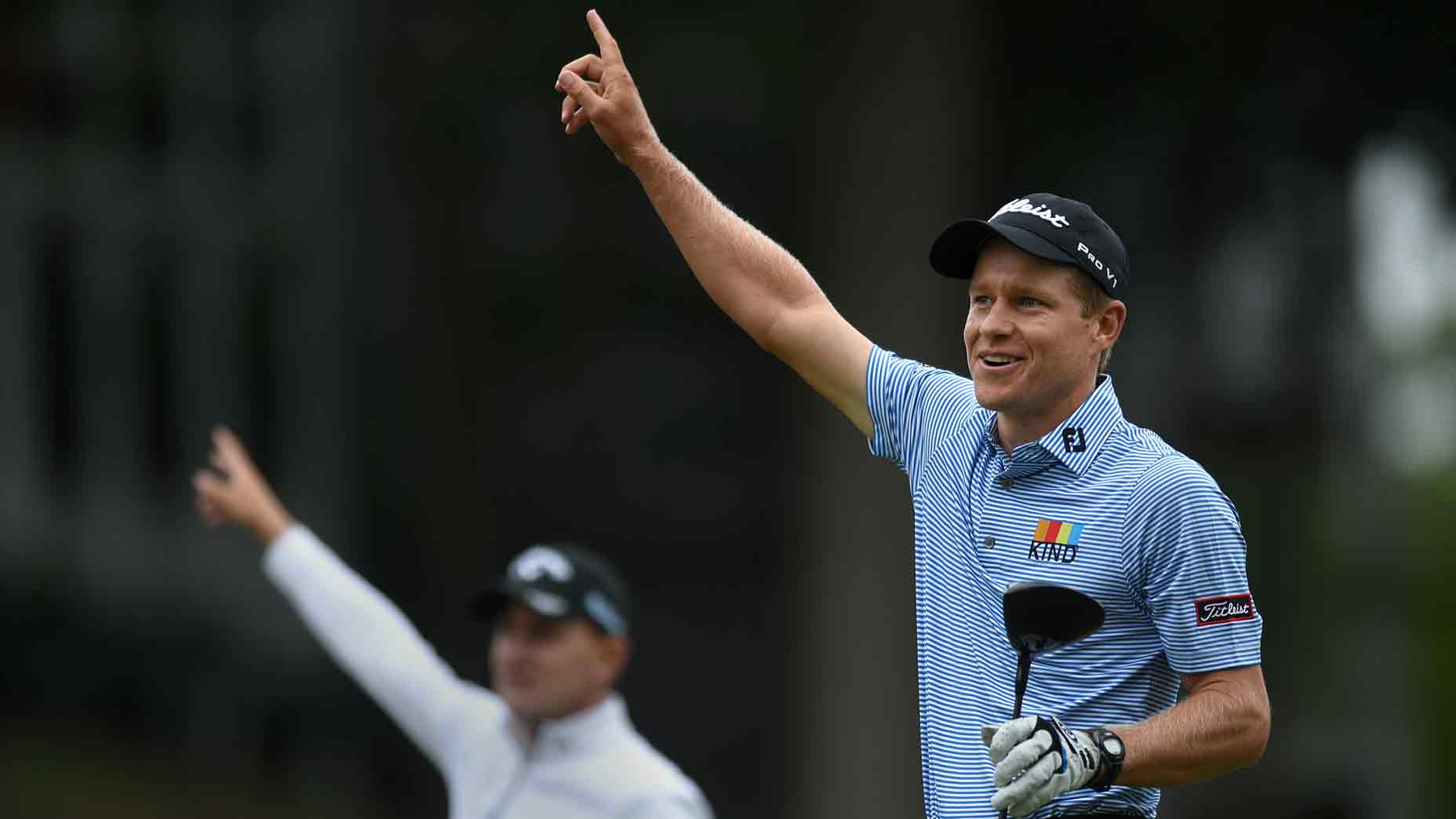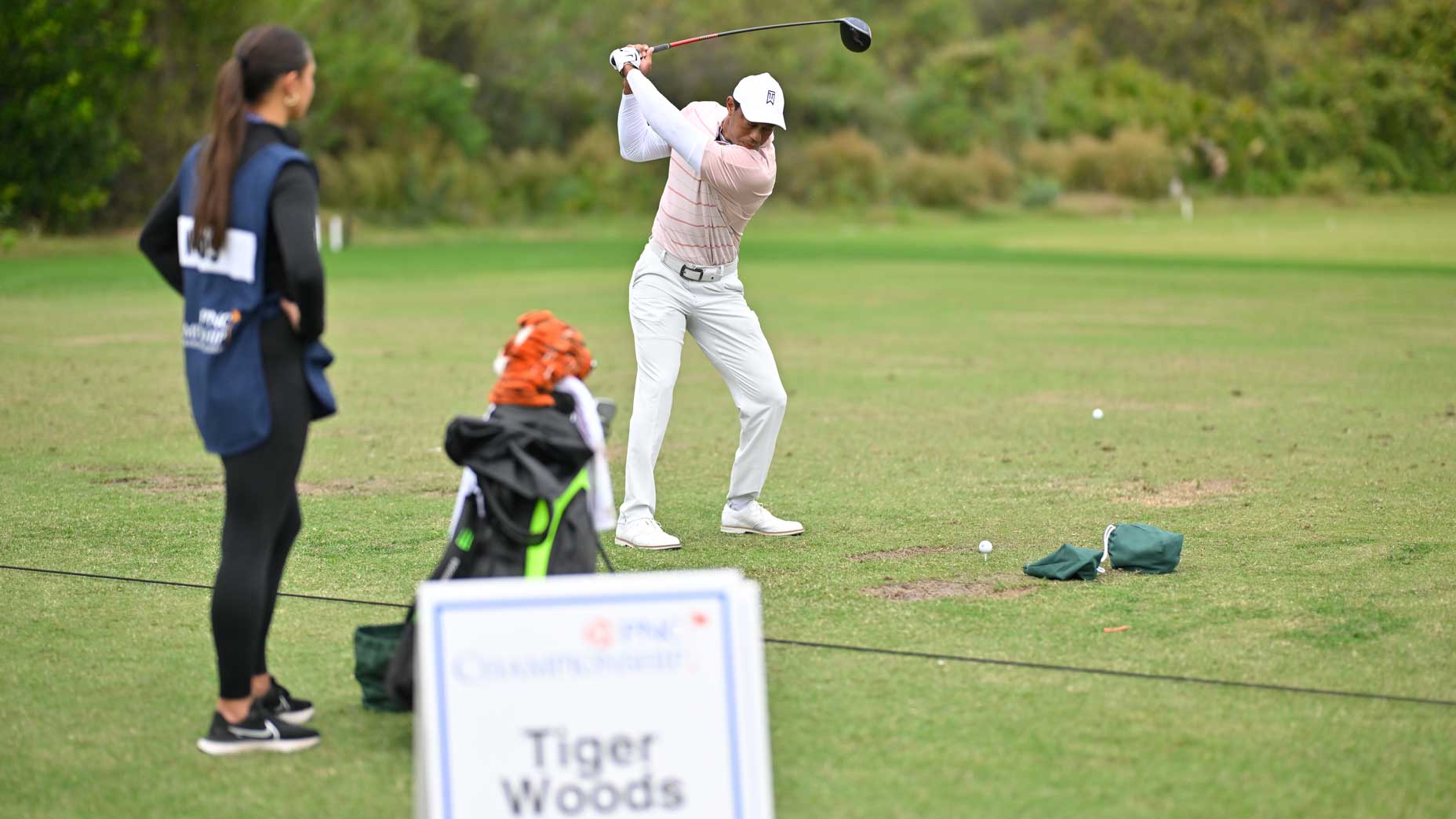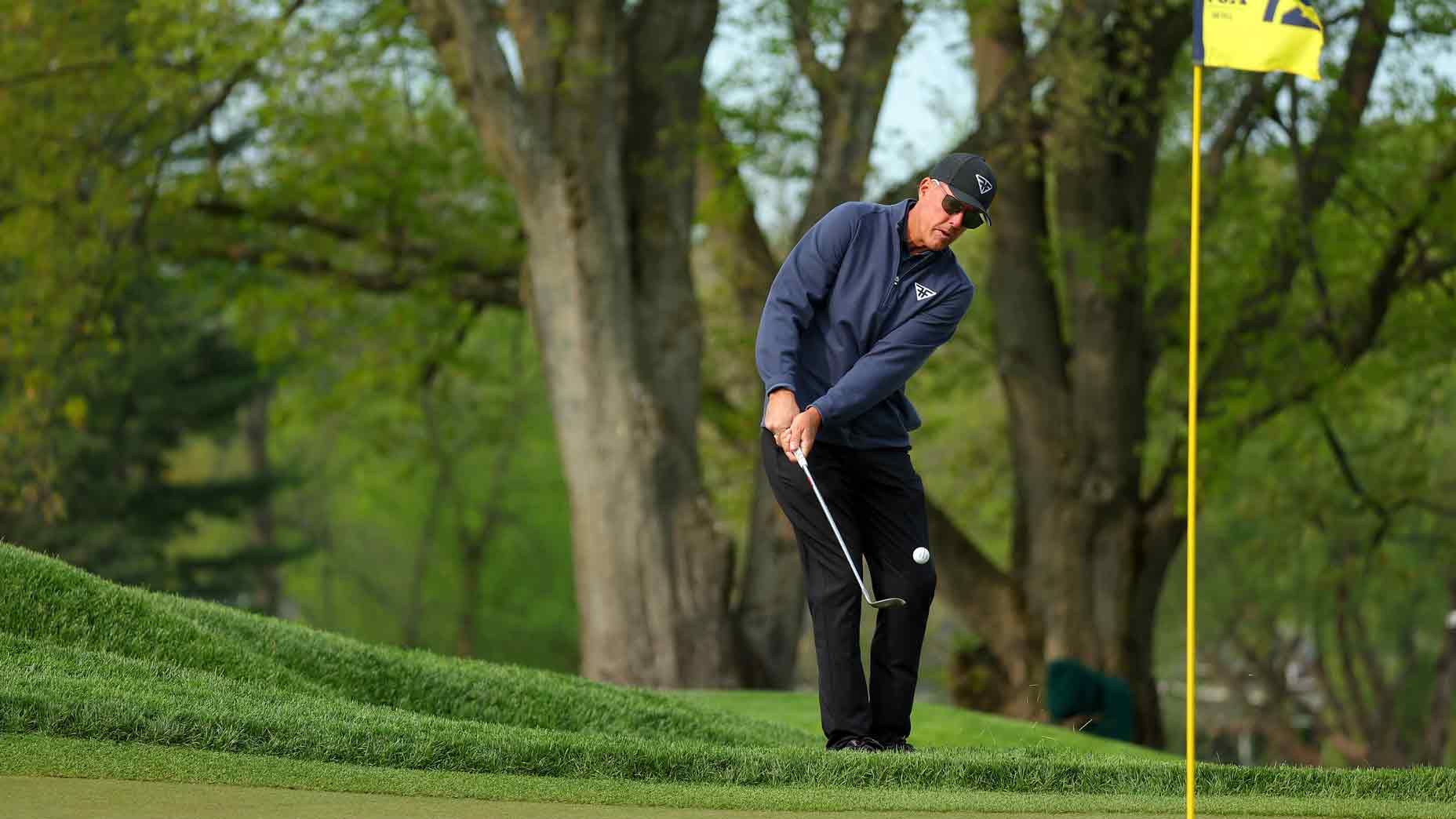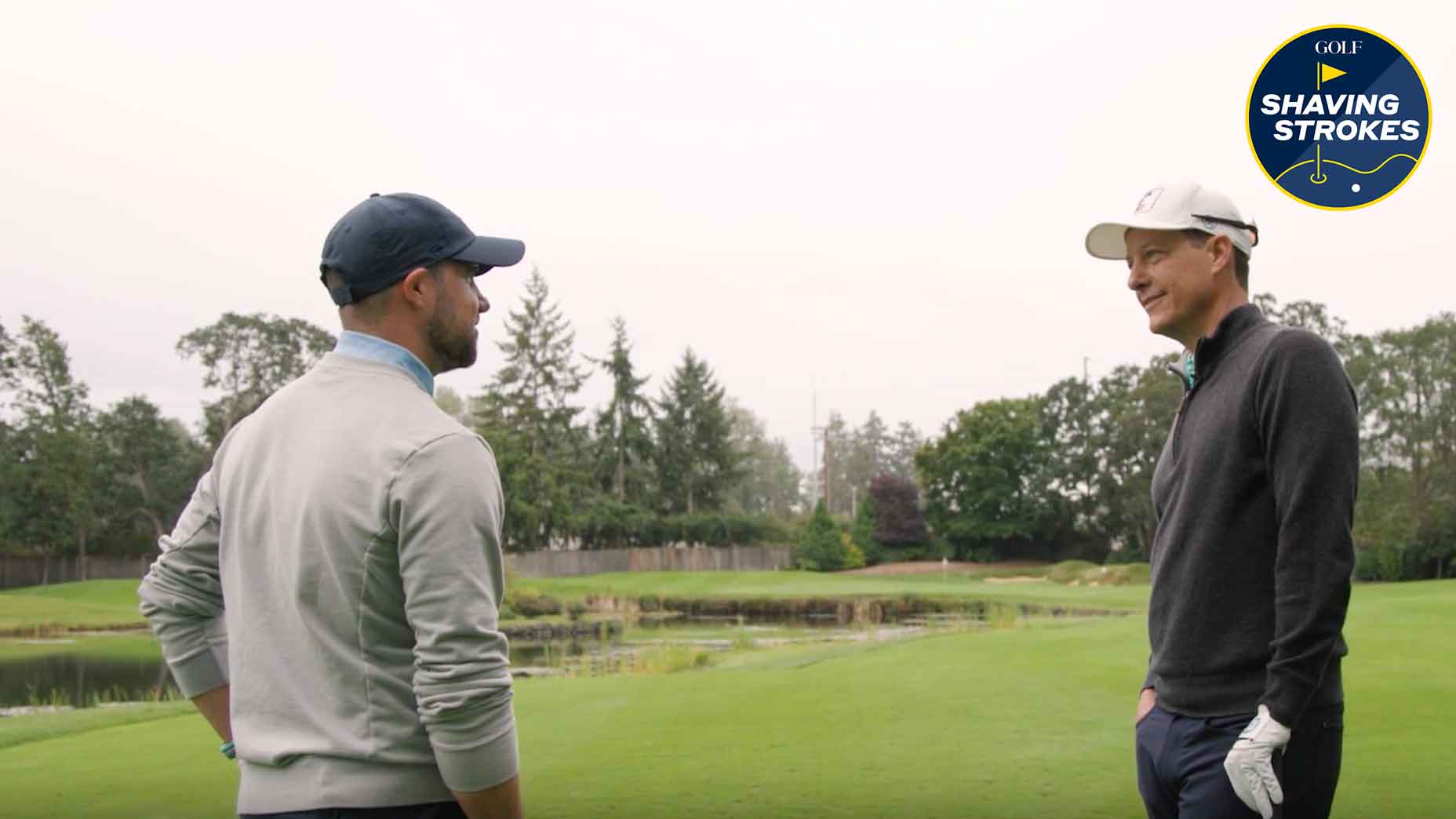10 takeaways every amateur can learn from my first Pro-Am
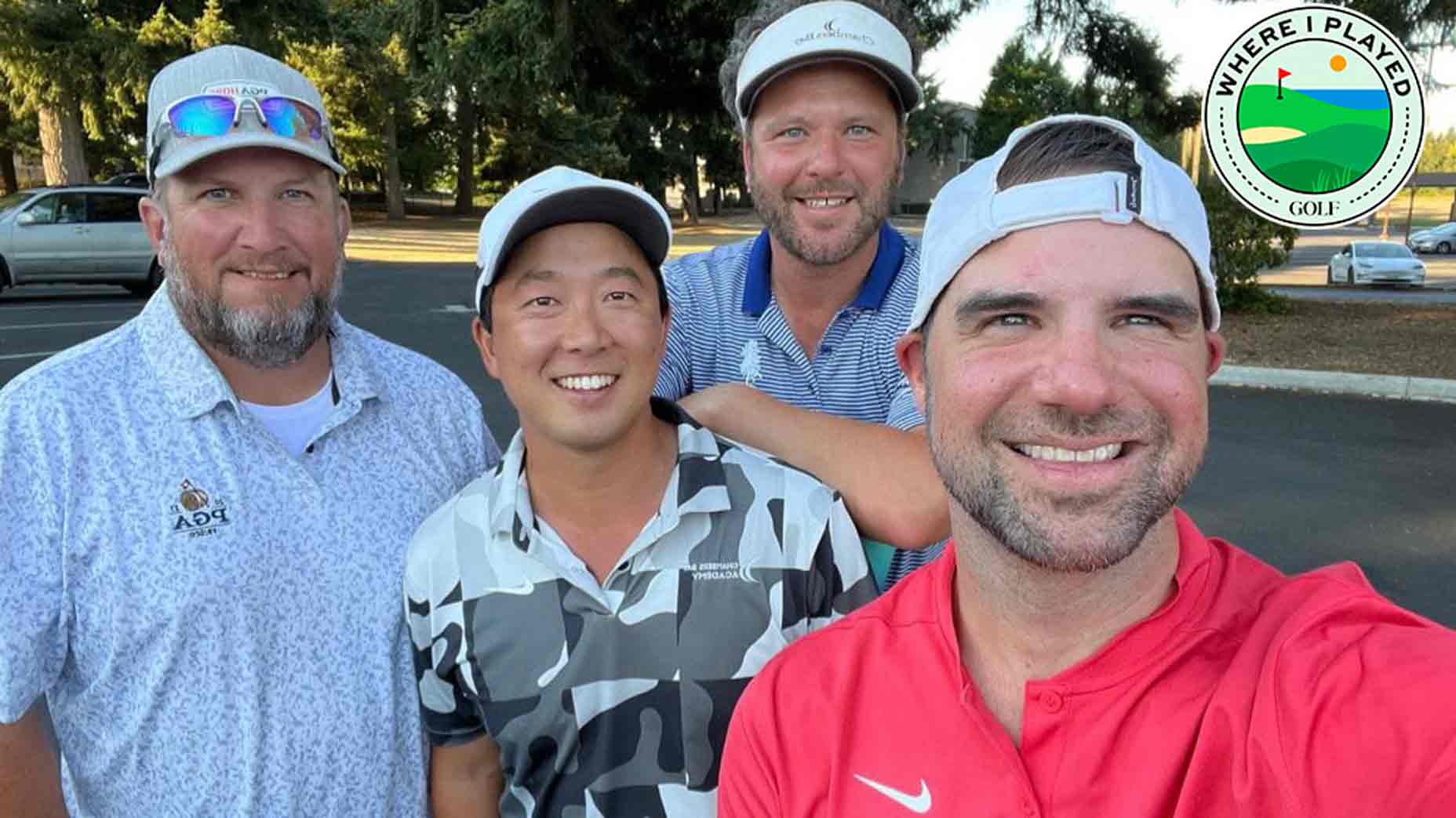
After playing my first-ever Pro-Am, there were lots of lessons worth sharing.
Instagram/ndimengo
Welcome to our “Where I Played” series, where a GOLF staffer runs through a recent day at a course you might play in your future. On this occasion, we’re teeing it up at Fairwood Golf & Country Club in Renton, Wash.
Nerves.
Excitement.
Competitiveness.
Performance anxiety.
These were just some of the feelings that I was experiencing prior to teeing it up for the first time at a golf Pro-Am event last week.
As someone who has run over 20 half-marathons, competed in numerous big games in high school in sports like baseball, basketball and soccer, these feelings were … odd.
Unlike those aforementioned events — where I felt prepared and in control of my emotions and performances — this Pro-Am offered a completely different kind of challenge. That’s mainly because my golf game isn’t something that I can mentally push myself to perform better physically.
For example, when I go running and feel dog tired after nine miles, I can sort of black out and keep going, giving myself mini goals to accomplish until I hit the 10-mile mark.
In golf? Not so much.
I have the killer instinct in my head to crush anyone I’m playing against. Unfortunately, I just don’t yet have the game to rise to the challenge of actually winning. It’s frustrating.
As I made my way to my first golf Pro-Am at Fairwood Golf & Country Club in Renton, Wash., I had no clue what to expect.
While I’ve been taking golf lessons with GOLF Top 100 Teachers for the past couple of months, was I really ready for this level of golf? Heck, I had never played tournament golf before — unless you count the one day I shot a 99 to barely make the first-day cut for the JV golf team 22 years ago.
But I was up for everything the Pro-Am threw at me — or so I thought.
Since many amateurs have similar nerves and questions prior to their first time playing competitive golf, this one’s for you! Those are completely normal (I think…?).
So here are 10 takeaways from my first-ever golf Pro-Am — which will hopefully be helpful for anyone reading this.
10 things I learned after playing my first-ever Pro-Am
Try as they might, nobody could really prepare me for my first golf Pro-Am.
There were different tips and suggestions, along with support, but it all went out the window upon arriving at Fairwood Golf & Country Club. I began comparing myself to everyone on the range, digging myself deeper into a hole of doubt.
I just didn’t have that edge I’ve had in other competitive events.
Throughout the entire round, I just felt off. I didn’t play my game, and sped up everything in my swing — causing bad slices and forced recovery shots.
But there were lots of lessons; and here were the most important ones.
1. Practice matters
I was so jazzed up prior to the Pro-Am that I didn’t actually catch my breath and just mentally prepare for the round.
Sure, I spent time on the putting green and hit balls on the range, but there were moments when everything just flew by — limiting my pre-round routine.
I gave myself 45 minutes before my tee time, which I thought was plenty. Between checking in and small talk, though, that flew by.
So be sure to give yourself enough time to soak in the excitement and then mentally and physically get yourself ready to roll.
2. Short game is the great equalizer
Just like in a regular round of golf, the short game can save a round. This held true during the Pro-Am even more so.
As I mentioned earlier, my ball-striking was all over the place, leading to inconsistent drives all day. But my chipping and putting saved me strokes, with some solid up-and-downs helping my team along the way.
So stay in the moment and try to avoid getting down on yourself after a bad shot. Being locked in when around the green will pay dividends.
3. Utilize golf resources
Don’t get me wrong, I love all the golf apps out there (like Game Golf’s KZN GPS Shot Tracker), but I usually hate having my phone out during a round of golf. For me, it just adds extra distractions that can take your attention away from the task at hand.
Two resources that I found really helpful were both the putting mirror for pre-round prep, along with the Golflogix Greens Books.
The former helped my alignment on my putts, and gave me an idea of where my setup should be while holding the flat stick. The latter is a great tool for playing any course, but is a definite must when playing somewhere for the first time.
Which side of the fairways are safe? How’s the slope on putting surface? What distances with which clubs? Golflogix Greens Books can show you, helping you prepare for every single shot on a course. It’s pretty cool.
4. Play with people who lift you up
As a 13-handicap, I knew I wasn’t going to win the Pro-Am. But I also didn’t think I’d play as bad as I did — shooting a 101. Yikes!
While I was upset with myself all round because I knew I was capable of playing better, my teammates were incredible the entire time.
They knew it was my first time playing in a Pro-Am, and since they had all played in plenty before, they gave me small tips.
Whether it was reading the line on a putt, or just some reinforcement that I’m not expected to shoot the round of my life, my group was solid. I suggest you try to find similar support if you ever play in a competitive tournament — rather than folks who take it way too seriously and come down on you for hitting a bad shot.
5. Know the rules!
Unlike all those so-called “gimmes” your buddies give you during a normal round, just a reminder that you’ve got to putt out everything during a tournament. So there’s a little extra pressure to make those two-footers that most golfers may usually pick up.
As for the Pro-Am scoring, we played Stableford rules, which was something brand new for me.
Essentially, the tournament at Fairwood was based off your handicap, where some bogeys counted as pars for the team, but was still one-over for the individual. It also included net score versus gross score.
Based off of the difficulty of each hole, a player could get a stroke. On easier holes, par was what the scorecard listed.
Even still, Stableford is confusing for me, so I recommend understanding how the scoring works beforehand — I missed the mark on that one.
6. Don’t be a hero
Luckily, this specific Pro-Am didn’t require pants — because it was a mid-90s day with some wildfire smoke. Still, I didn’t necessarily make the round easy for myself.
Outside of trying to hit hero shots (something all amateurs make the mistake of doing), because I wanted the “full experience”, I decided to carry my clubs on my back rather than just take the provided cart option.
If the tournaments allows for carts, use them!
7. Make a game plan and stick to it
Mike Tyson once famously said that “everyone has a plan until they get punched in the mouth.” Well, in my first Pro-Am, that epitomized my experience.
I made a mock game plan prior to the round, yet, almost immediately, went against it.
I knew I had been hitting my driver bad for a couple of rounds prior to the tournament, and told myself I’d sacrifice distance for more accuracy by using a 4-iron off the tee.
Guess what club I used on nearly every par 4s and par 5s? Yep, used my driver. So dumb.
No matter how tempting it is to be aggressive, you know your game better than anyone else. Utilize that information to your benefit. Not only will it help your scores, but it’ll prevent unnecessary frustration.
8. Double down on your strengths
Similar as the above, it’s so important to avoid frustration on your weaknesses.
Lean on the basics, and be honest with your expectations, because you sure as heck aren’t going to figure it all out during your round.
Just play your game, and stick to what’s most comfortable, avoiding the temptation to try and “show out” for your playing partners or other competitors if it means uncertainty in yourself.
Unfortunately, I went against this piece of advice during the Pro-Am.
When I told my wife about it afterwards, she said something that was pretty helpful: “Don’t choose your dive on the way down.”
In other words, you know what clubs and what shots you can hit. Don’t decide last-minute to do something differently.
9. Enjoy yourself
I put too much stress on myself to perform. Sure, I had fun, but I’m disappointed I didn’t execute the shots I know how to hit.
Another recommendation? Put your phone away and use a paper scorecard and yardage book. It avoids an extra distraction (no message alerts, emails, texts, etc), and allows your mind to focus on what’s in front of you, rather than read into an email from a client just as you’re about to tee off.
10. Just go for it
Play my first golf Pro-Am was intimidating and was frustrating at times. But it’s well worth it, and was a phenomenal experience.
I may have shot one of my worst rounds in a couple of years and didn’t feel like I pulled my weight for my team, but I did it. Deep down, that’s all that matters.
After finishing tied for 26th, I now have something to aim for next time I tee it up in a competitive tournament. I know what I need to do, and what I need to improve on — and that’ll make me come back for more.
SuperSpeed Golf Training System
$379.99
View Product





